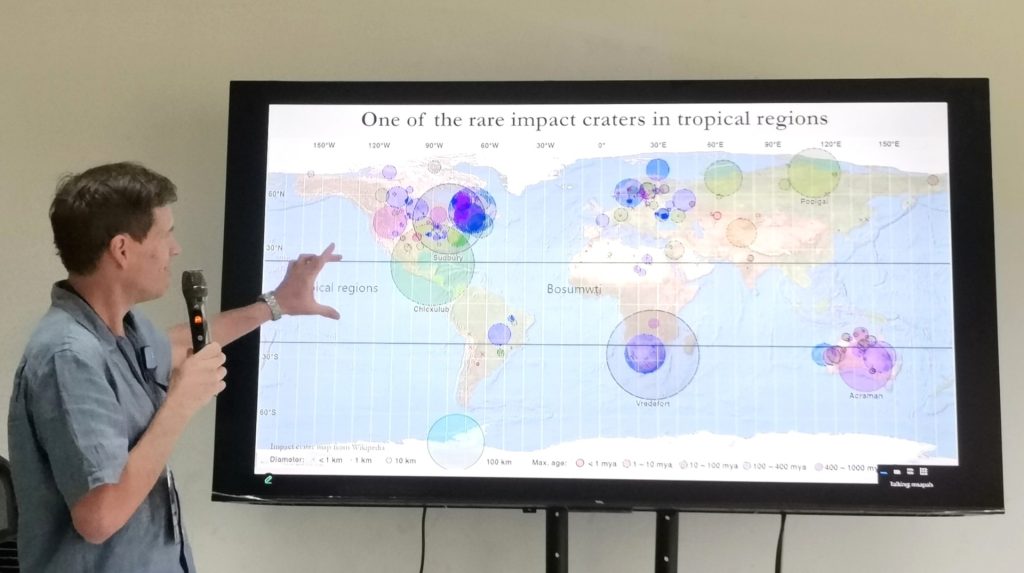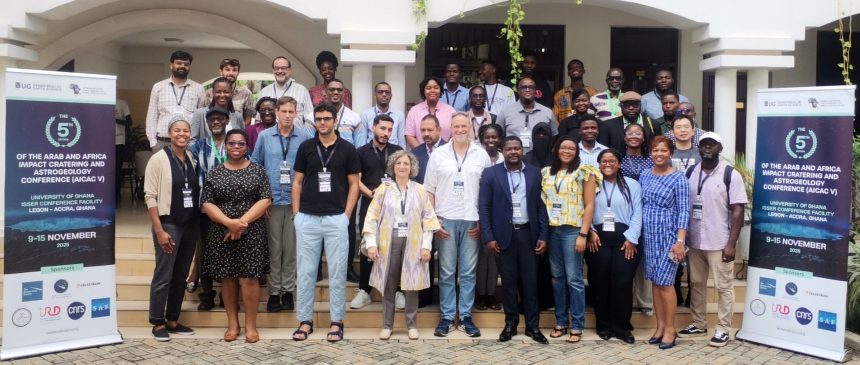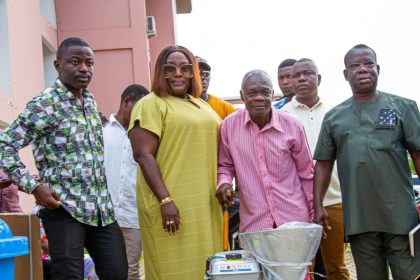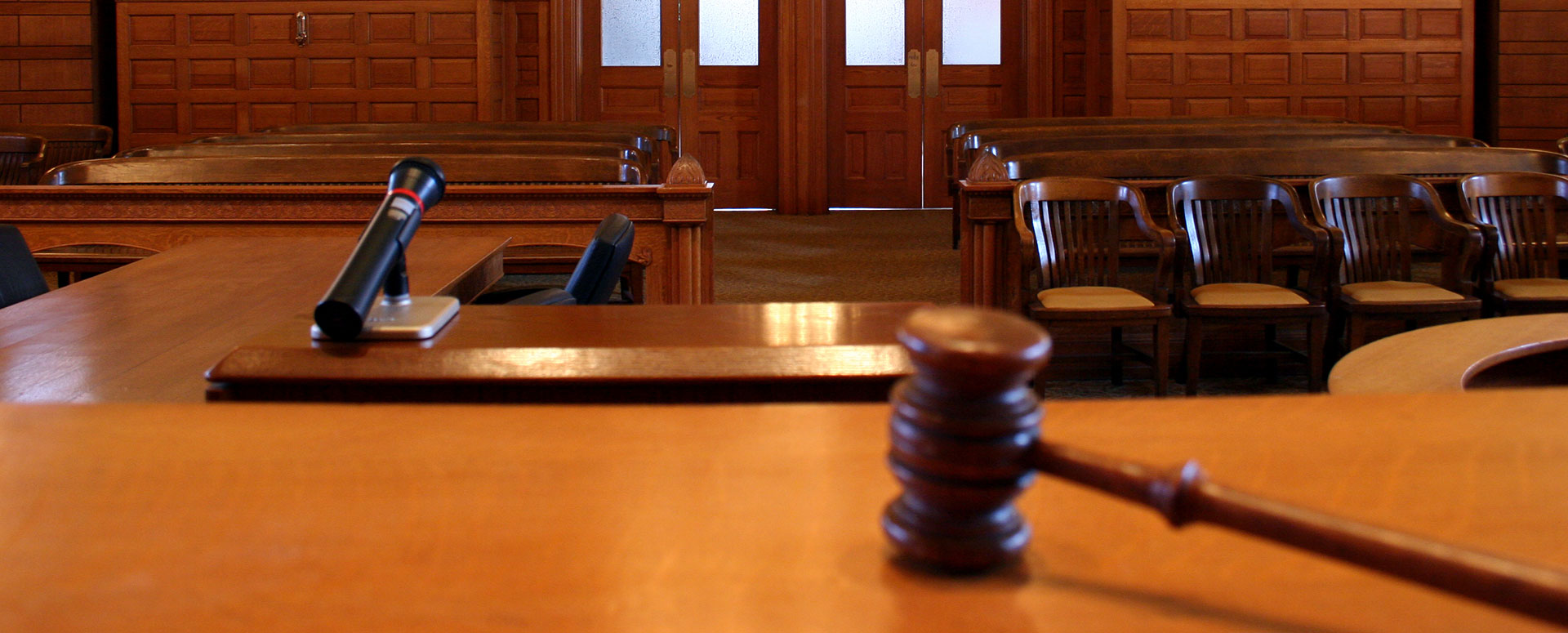Professor Sandow Mark Yidana, Provost, College of Basic and Applied Sciences, University of Ghana (UG), Legon, has called for joint research and cross-continental collaboration to strengthen Africa’s role in planetary and space science.
“I see a bright horizon for planetary and space science in Africa,” he said, highlighting growing cooperation among African universities that could drive innovative research and contribute to the global scientific agenda.
In a speech read on his behalf at the Fifth Arab and Africa Impact Cratering and Astrogeology Conference (AICAC V-2025) in Accra, Prof Yidana noted that understanding Earth’s place in the solar system was critical to humanity’s future.
The week-long conference is hosted by the University of Ghana’s Department of Earth Science in partnership with the African Initiative for Planetary and Space Science (AFIPS).
It has convened professionals, researchers, scientists, students, and science communicators from across the globe.
Sessions will focus on themes including impact cratering as an astronomical and geological phenomenon, impact processes from atomic to crustal scales, geochemistry of impactites, impact metamorphism, and structural features of impact structures.
Other topics include modelling of impact processes, meteorites, tektites, asteroids, economic geology, planetary evolution, climate and biosphere effects, mass extinctions, and ecotourism and heritage conservation related to impact craters.
According to the Planetary Society, recent advances in understanding the solar system’s origin and evolution have led to breakthroughs in spacecraft and robotic engineering, communication, navigation, medicine, and environmental monitoring.
Prof Yidana said the University of Ghana was integrating astrogeology-related courses into academic programmes offered by the Department of Earth Science, Department of Physics, and the Centre for Climate Change and Sustainable Studies (CCCSS).
“In particular, these academic programmes draw on astrology/astrophysics to provide the scientific foundation for addressing real-world challenges on our planet,” he explained.
Prof Yidana said that the initiative aligned with the UG Strategic Plan (2024–2025), which prioritises transformative student experiences, impactful research, and strategic partnerships.
The University, he said, was committed to training a new generation of researchers capable of interpreting data from other worlds and applying that knowledge to address climate change, resource management, and environmental protection.
Dr Joseph Tandoh, Director of the Ghana Space Science and Technology Institute (GSSTI), announced that Ghana had launched its National Space Policy, marking a significant milestone in the country’s space sector.
He said the policy aims to harness space technology to drive economic growth, enhance national security, and promote sustainable development.
It also seeks to improve coordination between government agencies and the private sector to optimise space-related activities.

Dr Marian Selorm Sapah, Chair of the AICAC V-2025 Local Organising Committee, said the programme was designed to raise awareness and interest in planetary and space science.
Participants will engage in activities including a pre-conference workshop on identifying impactites and meteorites, oral and poster presentations on the Bosomtwe impact structure, and recent geological and geophysical investigations at Bosomtwe.
Topics on meteorites include “Building Meteorite Science in Africa-Insights from the Moroccan Model” and “The Organic Composition of Meteorite Impactors- Implications for Planetary Chemistry.”
GNA






